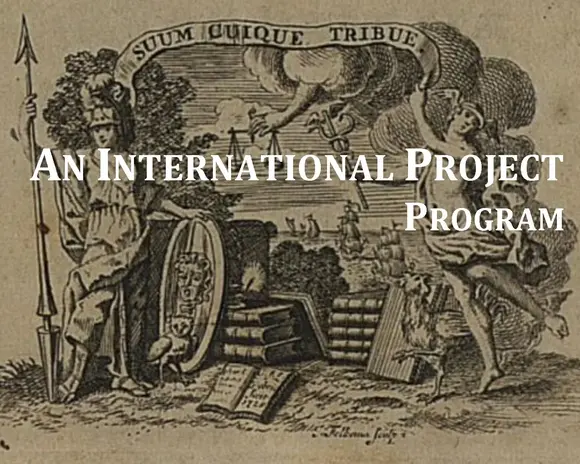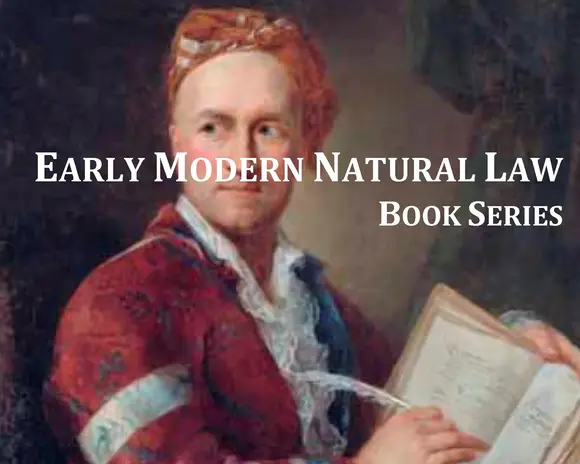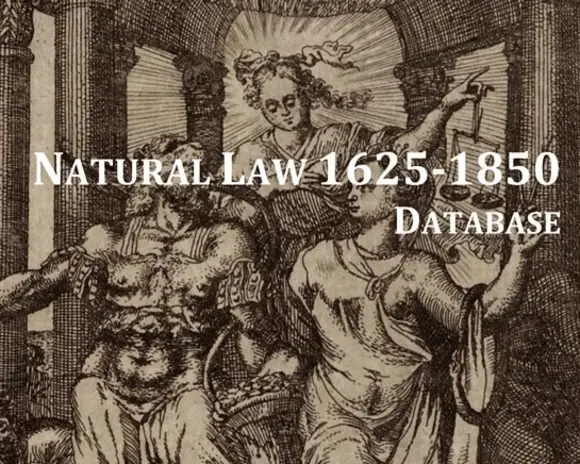Natural Law 1625-1850. An International Research Project (Halle/Erfurt)
The Network is concerned with natural law considered as an intellectual culture that flourished in the seventeenth, eighteenth and early nineteenth centuries. Our focus is on natural law as a distinct academic subject, or discipline, for it was in this form that it was institutionally established and became a resource for a wide variety of intellectual and practical developments. Central to the establishment of the discipline was the belief shared by both its proponents and its critics that it was a novelty, and that the founding figure was Hugo Grotius. His De iure belli ac pacis from 1625 became a defining feature of the new natural law, and a historiography suited to demonstrate this point was developed in an intense intellectual contest.
This marked the beginning of a new form of natural law and a new phase in its history. As a branch of moral and political theology, natural law had a long earlier history in Catholic thought and in ecclesiastical and civil polity. Grounded in civil law and politics, and taking shape as an independent academic subject, the new natural law emerged first in Protestant countries but soon found reception in Catholic contexts. The vocabulary of natural law quickly proved useful for formulating issues in a wide array of intellectual and practical cultures, ranging from jurisprudence, political and moral philosophy, and literature, to constitutional design, law reform, judicial practice, and diplomacy and international law.
The teaching of natural law thus often came to play the role of an intellectual “clearing-house” (Ian Hunter) at the centre of the arts, law, and politics curriculum, organising the basic learning through which educated people in the period set out. Drawing its materials from the practices of European public law, politics, and diplomacy, the language of natural law made these available in the more abstract and teachable vocabulary of obligation and rights, sovereignty and freedom, without escaping the profound contentions in which they were rooted. In order to understand these historical processes and thus to deal with our own questions of continuity and discontinuity of thought, we have to study natural law in its full intellectual and practical complexity.
Upcoming conferences:
- Erfurt, 5 - 6 March 2025: 'Wolffian natural law: A contested identity?’ Programme and dates to follow.
- Halle, 1 - 4 October 2025: 'Teaching Hugo Grotius. The reception of De Iure Belli ac Pacis in European academia between 1625 and 1850.’ See CfP under Announcements
New Projects
The German Research Council (DFG) has funded three new projects on natural law starting in 2022:
- Mikkel Munthe Jensen (Gotha), "Institutionalising the Law of Nature and Nations: The Universities of Kiel, Greifswald and Rostock 1648–1806".
- Martin Kühnel (Halle), "The teaching and formation of natural law at the University of Halle. The first period: 1694–1740".
- Mads Langballe-Jensen (Halle), "Academic natural law in absolutist Denmark c. 1690-1773: Professionalisation and politics".
Book Series
Volume 6 in the book series has been published in open access: Elisabetta Fiocchi Malaspina and Gabriella Silvestrini (ed.), Natural Law and the Law of Nations in Eighteenth- and Nineteenth-Century Italy (Leiden, 2023).
Database
Due to ongoing major maintenance, the database is currently operating with reduced functionality.




